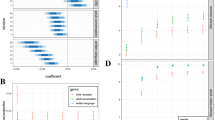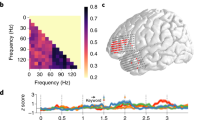Abstract
A computer program has been designed to simulate the process by which humans recognize the syntactic structure of sentences.
This is a preview of subscription content, access via your institution
Access options
Subscribe to this journal
Receive 51 print issues and online access
$199.00 per year
only $3.90 per issue
Buy this article
- Purchase on Springer Link
- Instant access to full article PDF
Prices may be subject to local taxes which are calculated during checkout
Similar content being viewed by others
References
Chomsky, N., Syntactic Structures (Mouton, The Hague, 1957).
Kuno, S., and Oettinger, A. G., in Information Processing 1962 (North–Holland Publ., Amsterdam, 1963).
Zwicky, A. M., Friedman, J., Hall, B. C., and Walker, D. E., in AFIPS Conference Proceedings: Fall Joint Computer Conference (1965).
Sager, N., in Advances in Computers, 8 (Academic Press, Inc., New York, 1967).
Thorne, J. P., Bratley, P., and Dewar, H., in Machine Intelligence 3 (Edinburg University Press, in the press).
Kleene, S. C., in Automata Studies (Princeton, 1956).
Author information
Authors and Affiliations
Rights and permissions
About this article
Cite this article
BRATLEY, P., DEWAR, H. & THORNE, J. Recognition of Syntactic Structure by Computer. Nature 216, 969–973 (1967). https://doi.org/10.1038/216969a0
Received:
Published:
Issue Date:
DOI: https://doi.org/10.1038/216969a0
This article is cited by
-
Recognition of Syntactic Structure by Computer
Nature (1968)
-
Recognition of Syntactic Structure by Computer
Nature (1968)
-
The effect of chlorpromazine on sentence structure of schizophrenic patients
Psychopharmacologia (1968)
Comments
By submitting a comment you agree to abide by our Terms and Community Guidelines. If you find something abusive or that does not comply with our terms or guidelines please flag it as inappropriate.



